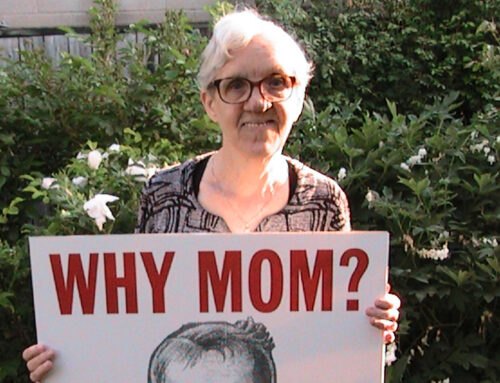Eric Mason The Interim
Across the country, youth of every political persuasion are banding together to build the culture of life and are fighting on the electoral frontlines, where the battle is hottest, and can have a real, dynamic influence on the culture of life. Attaining the short-term goal of electing pro-life, pro-family legislators in order to build a culture of life is only possible through long-term work by youth in their own communities. While these efforts are always important, they become paramount during an election. The election of pro-life, pro-family candidates will occur only if the public has a clear, balanced understanding of the influence of moral and life issues upon their own lives. Youth can play a central role in this schooling of the public. Youth can effectively employ the forum of public debate to communicate the message of the culture of life and engage popular objections. Recently, I debated a resolution concerning the immorality of embryonic stem cell research. This debate educated the audience about the intrinsic moral problem of embryonic stem cell research and the great scientific progress made by ethical unobjectionable adult stem cell research. In addition to debate, youth can work in the public square by contributing editorials to the local newspaper promoting the value of human beings at every stage of our journey, through intelligent and winsome comment on issues central to an election debate. If the youth of Canada can meet this concern with an intellectual and affective witness to the truth of the absolute value of the human being, then they will really have influence on the political landscape. The pro-life idealism of youth is not sufficient in itself and requires a synthesis with action to bring about real change. Specifically, if Canada is to truly build up the culture of life, then a renewal of the democratic process is necessary, for the dignity of man not only includes his right to life, but also his right of liberty. A growing number of intellectuals argue that democracy in Canada is no more than a hollow facade. As journalist Richard Gwyn states, “Canada isn’t really a democracy … we are really a guided democracy – guided from the top downward, no differently from the 19th century, when the Family Compact told us what to do.” By supporting pro-life candidates, youth directly renew democracy and the culture of life. Youth involvement in the campaign team of pro-life candidates is a concrete means by which youth contribute to the pro-life cause locally and nationally. Youth can build lasting and personal relationships with a candidate, encouraging her never to mitigate the message of the dignity of all human beings and reminding her of the words of the great Irish statesman, Daniel O’Connell: “Nothing is politically correct which is morally wrong.” During the most recent federal campaign, candidates who spoke out on pro-life issues, like Cheryl Gallant, won overwhelmingly in their ridings. This is an encouraging testimony to the importance many Canadians place on such matters. Youth can encourage candidates to be open and proud of their pro-life stances, showing them that respect for life is an inner dimension of moral fortitude that merits community respect, if not actual agreement. Pro-life youth can also build relationships with members of the community, especially local pro-life associations, openly assisting them to support culture of life candidates, regardless of political party. Unfortunately, in my riding of Peterborough, there was no candidate, in the recent federal election, who firmly supported the right to life. Nonetheless, I worked on the campaign of the Conservative candidate and encouraged him in his defence of the traditional definition of marriage. By immersion in the campaigns of pro-life candidates, youth integrate effort and idealism to champion the cause of life. In essence, the struggle for the culture of life is not merely a battle fought on the floors of Parliament or in the halls of academe, but in the hearts and minds of the people of Canada. The primary aim of the pro-life movement is not political, but cultural. Society progresses, rather than regresses, insofar as it recognizes the intrinsic dignity of the human person, the right to life, the value of the family and when it works for a civilization of love. The election of pro-life candidates is the natural result of a society that values life and democracy, which is guided by enduring moral principles, not utilitarian ideology. Youth have a critical role to play, as witnesses and a force against the culture of death. Above all, the greatest gift youth can bring to the pro-life cause is steadfast prayer and the spiritual benefits of a virtuous, charitable life, without which it is impossible to make authentic progress. Under energetic local leadership, youth can change the lives of others and inspire and activate them in the cause of life. As the poet says, “Oft shall help come from the weak, when the eyes of the great are elsewhere.” |

 Thomas Jefferson once wrote that, “The care of human life and happiness, and not their destruction, is the first and only legitimate object of good government.” These inspiring words hold a special significance today in Canada, where the culture of death and its destructive vision of humanity permeates the political sphere. This Jeffersonian aphorism has become an empty platitude for many and an abandoned ideology for others. Yet, just as Canadian political leaders are renouncing their belief in the dignity of man, the youth of Canada are rising up in defence of dignity, freedom, family and life.
Thomas Jefferson once wrote that, “The care of human life and happiness, and not their destruction, is the first and only legitimate object of good government.” These inspiring words hold a special significance today in Canada, where the culture of death and its destructive vision of humanity permeates the political sphere. This Jeffersonian aphorism has become an empty platitude for many and an abandoned ideology for others. Yet, just as Canadian political leaders are renouncing their belief in the dignity of man, the youth of Canada are rising up in defence of dignity, freedom, family and life.


